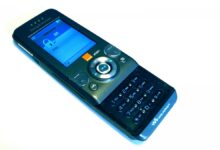Phone Based CRM: 7 Powerful Benefits You Can’t Ignore
Imagine managing your entire customer relationship from your smartphone—anytime, anywhere. That’s the power of a phone based CRM. It’s not just convenient; it’s a game-changer for modern businesses.
What Is a Phone Based CRM?

A phone based CRM is a customer relationship management system designed primarily for mobile devices. Unlike traditional CRM platforms that rely heavily on desktop access, phone based CRM solutions are built with mobile-first functionality, enabling sales teams, customer support agents, and business owners to manage client interactions directly from their smartphones.
Core Definition and Functionality
At its core, a phone based CRM integrates contact management, communication tracking, task scheduling, and sales pipeline monitoring into a mobile-friendly interface. These systems sync seamlessly with cloud databases, ensuring that data entered on a phone is instantly available across all connected devices.
- Real-time data access from any location
- Integration with mobile calling, SMS, and email
- Offline mode capabilities for areas with poor connectivity
According to Salesforce, CRM usage has increased by over 60% in the last five years, with mobile access being a major driver of adoption.
Evolution from Desktop to Mobile
Traditional CRM systems were developed in the early 2000s with desktop interfaces as the primary access point. As smartphones became ubiquitous, businesses demanded more flexibility. This led to the development of mobile apps and, eventually, fully optimized phone based CRM platforms.
The shift wasn’t just about convenience—it was about responsiveness. A study by Zendesk found that 75% of customers expect a response within five minutes when contacting support via mobile channels.
“The future of CRM isn’t on a desk—it’s in your pocket.” – Gartner Research, 2023
Top 7 Benefits of Using a Phone Based CRM
Adopting a phone based CRM isn’t just a tech upgrade—it’s a strategic move. Here are seven powerful advantages that can transform how your team interacts with customers.
1. Real-Time Access to Customer Data
With a phone based CRM, your team can pull up customer histories, past purchases, and communication logs instantly during a call or meeting. No more flipping through notebooks or waiting to get back to the office.
- Immediate access to client profiles
- View open support tickets or pending follow-ups
- Update records on the spot after a conversation
This real-time capability reduces errors and improves service quality. For example, a sales rep visiting a client can reference their last interaction and offer personalized recommendations immediately.
2. Increased Sales Team Mobility
Sales professionals are rarely at their desks. A phone based CRM empowers them to stay productive while on the move—whether they’re driving to a meeting, waiting at an airport, or working remotely.
Features like GPS check-ins, mobile lead capture, and voice-to-text note entry make it easier than ever to log activities without interrupting the workflow.
- Log calls and meetings directly from the phone
- Assign follow-up tasks with reminders
- Access sales forecasts and pipeline dashboards on the go
Companies using mobile CRM report a 14.6% increase in sales productivity, according to Nucleus Research.
3. Faster Response Times to Leads
In sales, speed matters. Research from HubSpot shows that the likelihood of qualifying a lead drops by 400% if the follow-up takes longer than 10 minutes.
A phone based CRM enables instant lead assignment and notification. When a new lead comes in via web form or chat, the system can push an alert to a sales rep’s phone, allowing them to call within minutes.
- Automated lead routing to the nearest available agent
- Click-to-call functionality from within the app
- Pre-loaded response templates for quick replies
“The first to respond often wins the deal.” – InsideSales.com Study
How Phone Based CRM Enhances Customer Experience
Customer experience is no longer just about the product—it’s about the entire journey. A phone based CRM plays a crucial role in delivering seamless, personalized interactions.
Personalized Communication at Scale
With access to detailed customer profiles, reps can tailor their conversations based on past behavior, preferences, and purchase history. This level of personalization builds trust and loyalty.
- Send birthday greetings or anniversary offers via SMS
- Reference previous support issues during calls
- Recommend products based on browsing history
For instance, a telecom company using a phone based CRM can identify customers nearing their data limit and proactively offer upgrade plans via text.
Seamless Omnichannel Support
Modern customers expect to switch between channels without repeating themselves. A phone based CRM integrates voice, SMS, email, and even social media messages into a single timeline.
When a customer texts a question, the support agent can see the full history—including past calls and emails—and respond appropriately without asking for context.
- Unified inbox for all communication channels
- Automatic logging of SMS and call transcripts
- Integration with WhatsApp and Facebook Messenger
This reduces frustration and increases first-contact resolution rates by up to 35%, as reported by Forrester.
Key Features to Look for in a Phone Based CRM
Not all phone based CRM platforms are created equal. To get the most value, focus on these essential features.
Offline Mode and Sync Capabilities
Field agents often work in areas with spotty internet. A robust phone based CRM should allow data entry in offline mode and automatically sync when connectivity is restored.
- Save notes, calls, and tasks without Wi-Fi
- Sync with cloud servers once back online
- Conflict resolution for duplicate entries
This ensures no data is lost and keeps the team productive even in remote locations.
Click-to-Call and Call Logging
One of the most powerful features of a phone based CRM is integrated telephony. Click-to-call lets users dial contacts directly from the app, while call logging automatically records duration, time, and notes.
Some advanced systems even offer voice recognition to transcribe calls and highlight action items.
- Direct integration with mobile phone dialer
- Automatic call recording (with consent)
- Tag important calls for follow-up
Platforms like HubSpot CRM and Zoho CRM offer these features natively.
Task and Reminder Management
Staying on top of follow-ups is critical. A good phone based CRM includes task management tools that send push notifications and calendar alerts.
- Schedule callbacks with one tap
- Set reminders for contract renewals
- Assign tasks to team members with deadlines
These tools reduce missed opportunities and improve accountability across the team.
Top Phone Based CRM Platforms in 2024
Choosing the right platform can make or break your mobile strategy. Here are some of the top phone based CRM solutions available today.
1. HubSpot CRM
Known for its user-friendly interface, HubSpot offers a powerful free tier with full mobile app support. Its phone based CRM features include contact management, deal tracking, and email integration.
- Free forever plan with core CRM features
- Mobile-optimized dashboard
- Integration with Gmail, Outlook, and Slack
It’s ideal for startups and small businesses looking to scale without upfront costs.
2. Zoho CRM
Zoho CRM stands out with its AI-powered assistant, Zia, which provides sales predictions and automated follow-up suggestions. The mobile app is highly customizable and supports offline mode.
- AI-driven insights and automation
- Field service management tools
- Multi-language support for global teams
Zoho is particularly strong for businesses with field sales or service teams.
3. Salesforce Mobile
Salesforce remains the industry leader, and its mobile app brings enterprise-grade functionality to smartphones. With Einstein AI, reps get real-time recommendations and forecasting.
- Advanced analytics and reporting
- Customizable workflows and approvals
- Integration with over 3,000 third-party apps
While more complex, it’s perfect for large organizations needing deep customization.
How to Implement a Phone Based CRM Successfully
Rolling out a new CRM isn’t just about installing an app—it requires planning, training, and ongoing support.
Assess Your Team’s Needs
Before choosing a platform, evaluate your team’s workflows. Are they mostly in the field? Do they need offline access? What integrations are essential?
- Conduct interviews with sales and support staff
- Map out common customer interaction scenarios
- Identify pain points in current processes
This ensures the chosen phone based CRM aligns with real-world usage.
Provide Comprehensive Training
Even the best CRM fails if users don’t know how to use it. Offer hands-on training sessions, video tutorials, and quick-reference guides.
- Host live onboarding webinars
- Create a mobile-friendly knowledge base
- Assign internal CRM champions for peer support
According to CIO.com, companies that invest in CRM training see 2.5x higher adoption rates.
Monitor Usage and Optimize
After launch, track key metrics like login frequency, data entry completeness, and task completion rates. Use this data to refine processes and provide targeted coaching.
- Set up dashboards to monitor user activity
- Run monthly reviews with team leads
- Adjust workflows based on feedback
“Implementation is not a one-time event—it’s an ongoing process.” – CRM Industry Best Practice Guide
Common Challenges and How to Overcome Them
While phone based CRM offers many benefits, it’s not without challenges. Here’s how to tackle the most common issues.
Data Security and Privacy Concerns
Storing sensitive customer data on mobile devices raises security questions. Ensure your CRM uses end-to-end encryption, multi-factor authentication, and remote wipe capabilities.
- Require biometric login (fingerprint or face ID)
- Enable automatic logout after inactivity
- Comply with GDPR, CCPA, and other data regulations
Choose vendors with SOC 2 or ISO 27001 certifications for added trust.
User Adoption Resistance
Some team members may resist switching from paper or desktop systems. Address this by highlighting time-saving benefits and involving them in the selection process.
- Start with a pilot group to gather feedback
- Show quick wins, like faster lead response
- Offer incentives for consistent usage
Transparency and support go a long way in overcoming resistance.
Future Trends in Phone Based CRM Technology
The evolution of phone based CRM is far from over. Emerging technologies are set to make these systems even more powerful.
AI-Powered Predictive Analytics
Future phone based CRM platforms will use AI to predict customer behavior, recommend next steps, and even draft responses. For example, AI could alert a rep that a client is likely to churn and suggest a retention offer.
- Automated sentiment analysis of calls
- Predictive lead scoring
- Smart scheduling based on customer availability
Companies like Microsoft Dynamics 365 are already integrating these features.
Voice-Activated CRM Assistants
Imagine saying, “Log a call with John about the Q3 contract,” and your phone based CRM does it automatically. Voice assistants powered by natural language processing will make this a reality.
- Hands-free data entry while driving
- Voice search for customer records
- Real-time translation during international calls
This will boost efficiency, especially for field-based teams.
Deeper Integration with Wearables
As smartwatches and AR glasses become more common, CRM data could be displayed directly on wearable devices. A sales rep could see a client’s profile on their smartwatch before a meeting.
- Push notifications to wearables
- Voice commands via smart earbuds
- Augmented reality overlays for product demos
While still emerging, this trend will redefine mobile CRM in the next 3–5 years.
What is a phone based CRM?
A phone based CRM is a customer relationship management system optimized for smartphones, allowing users to manage contacts, track communications, and close deals directly from their mobile devices.
Can a phone based CRM work offline?
Yes, many phone based CRM platforms offer offline mode, allowing users to view and edit data without internet access. Changes are synced automatically when connectivity is restored.
Is a phone based CRM secure?
Reputable phone based CRM providers use encryption, secure authentication, and compliance protocols to protect data. Always choose platforms with strong security certifications.
Which industries benefit most from phone based CRM?
Sales teams, real estate agents, field service technicians, insurance brokers, and healthcare providers benefit greatly from phone based CRM due to their mobile nature.
How does a phone based CRM improve customer service?
It enables faster response times, provides instant access to customer history, and supports omnichannel communication, leading to more personalized and efficient service.
Phone based CRM is no longer a luxury—it’s a necessity for businesses that want to stay agile and customer-focused. From real-time data access to AI-driven insights, these platforms empower teams to work smarter, respond faster, and build stronger relationships. By choosing the right solution and implementing it effectively, companies can unlock new levels of productivity and customer satisfaction. The future of CRM is mobile, and it’s already here.
Further Reading:


